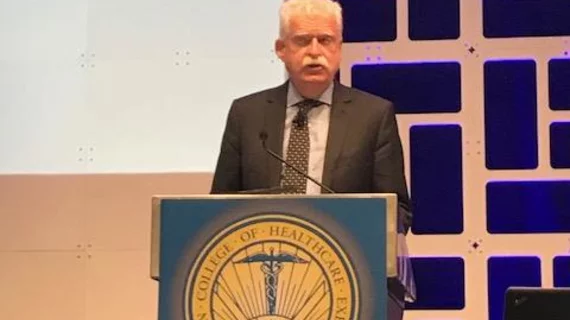AHA backing legislation to change antitrust reviews
The American Hospital Association (AHA) is lending its support to a bill to change the merger review process at the Federal Trade Commission (FTC), eliminating the agency’s ability to challenge proposed combinations without going to court.
The bill, called the Standard Merger and Acquisition Reviews Through Equal Rules, or SMARTER, Act, has passed the House and has now been introduced in the Senate by Sens. Mike Lee and Orrin Hatch, both Republicans from Utah, along with Thom Tillis, R-North Carolina, and Chuck Grassley, R-Iowa.
According to its sponsors, it would streamline differing standards between federal agencies which review mergers for potential antitrust concerns. For healthcare organizations, the most important change would be getting rid of the FTC’s administrative process—which has been used to block proposed hospital mergers—and requiring the agency to go to court to gain an preliminary injunction against these deals like the Department of Justice (DOJ).
“The only people that benefit from uncertainty in antitrust law are antitrust lawyers,” Lee said in a statement. “Both businesses and consumers deserve clarity and certainty when it comes to federal antitrust law enforcement and the SMARTER Act would create a simpler and more equal system.”
AHA executive vice president Tom Nickels Nickels argued in a letter to senators that the differing standards makes the FTC review process more burdensome and increases the likelihood the proposed merger will be abandoned.
Making antitrust agencies prove their cases in court will be more efficient, Nickels argued, as well as give merging parties due process to defend their transaction.
“While the AHA supports enforcement of the antitrust laws, relying exclusively on the federal courts to determine the competitiveness of a transaction ensures that hospitals, and others, receive a full hearing on the merits,” he wrote.
The SMARTER Act has been introduced twice before, both times passing in the House but not Senate. It passed the House a third time on May 9 by a vote of 230-185, with only four Democrats voting in favor. Unlike past attempts, the House bill had two Democratic cosponsors: Reps. Collin Peterson of Minnesota and Scott Peters of California.
But like those previous bills, it’s being opposed by antitrust and consumer advocacy groups. The American Antitrust Association argued the concerns cited by the bill’s sponsors “are without foundation.” By their count, mergers judged by the DOJ were more likely to be challenged than when the review is handled by the FTC.
“The SMARTER Act would create uncertainty and new litigation to solve a problem that, empirically, does not exist,” AAI said. “This is not smart at all.”

